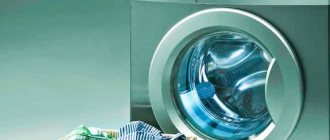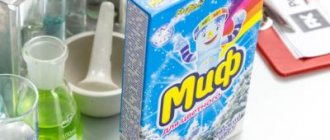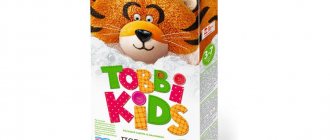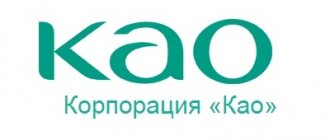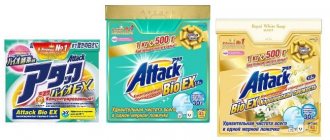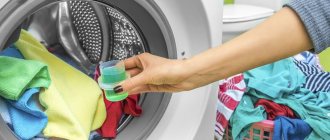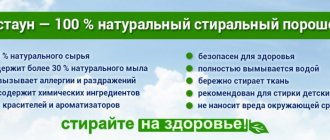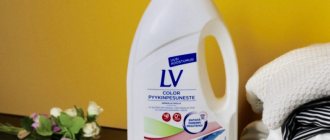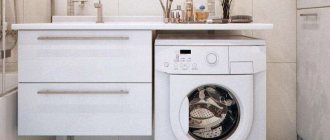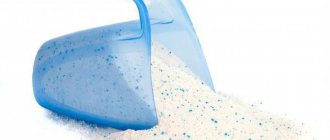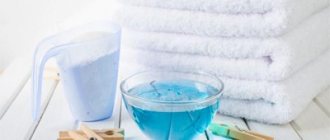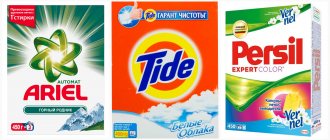There is probably not a single person in the world who does not currently use detergents at home or at work. I mean such children of civilization as residents of megacities, and indeed the entire civilized world. We will not take into account the aborigines of the Piraha tribe and others like them.
When choosing washing powders, we often do not pay attention to what is included in the composition or simply do not understand what is harmful and what is not so bad. We buy detergents either because we like the way they wash and wash, or because the stores offer us two for the price of one. But few people think about what these ordinary and irreplaceable washing and detergents are made of, which no housewife can do without. The fact is that washing powders, leaving particles on clothes or linen, come into direct contact with human skin. As you know, the skin is the largest human organ, which is involved in breathing, thermoregulation, metabolic and many other processes, and is a kind of conductor of useful and unhealthy elements from the outside world into our body.
Let's see what washing powders are made of and how to choose the one whose composition will cause the least damage to our body.
Enemy of our body No. 1 - surfactants (surfactants)
Absolutely any washing product contains surfactants - these are chemicals, petroleum products, with the help of which our laundry becomes clean, in other words, which give the washing powder the ability to remove certain contaminants.
Let's dot the i's - all surfactants are, to one degree or another, unhealthy for our body. Well, chemistry cannot be absolutely harmless... When surfactants enter our body, they cover the cell surface of the membranes with a thin layer and cause irreversible disruption of the most important biochemical processes that occur in them. But, as you know, dirt or grease can hardly be washed off with ordinary water. It is not for nothing that nature has endowed waterfowl with special glands that produce fat, thanks to which they can float on the water. But we are not birds and we don’t need fat on our underwear. Then a surfactant comes to the rescue. It clings the fat molecule to the water, thereby removing it from our duvet cover or blouse.
To the extent that a surfactant can biodegrade, it can be environmentally friendly and harmless to our body. Absolutely complete biodegradability is 100% biodegradation of surfactants to water and carbon dioxide, which do not harm living organisms and our nature.
Despite all these passions, we understand that it will be very difficult to completely abandon the use of washing powder. Our task is to correctly read and interpret the ingredients included in the powder in order to make the right choice when purchasing, thereby protecting your body.
All surfactants are divided into ionic and nonionic .
Legislative aspect of the problem
How does Russian legislation look at this problem? Is there any positive experience in solving this problem in other countries? In Russia there is an interstate standard GOST 32509-2013 “Surfactants. Method for determining biodegradability in an aquatic environment"; in Europe – EU Directive 648/2004 on detergents; however, the Russian standard has more stringent requirements. In addition, manufacturers of safe household chemicals are also appearing in Russia. In particular, residents of Skolkovo and the Universitetsky technology park, Ural, have developed biodegradable detergents based on pectin and cellulose, which make it possible not to use anionic surfactants in the compositions, reduce the amount of non-ionic surfactants to 5% and avoid the addition of phosphates and phosphanates.
The innovativeness of the development lies in the patented substance – biomicrogels ® . These are gel particles of natural origin with unique properties. Their sizes range from 100 to 1000 nanometers. They have high surface activity, emulsifying ability and reversible solubility, while being completely harmless to humans and the environment. Special modifications of biomicrogels ® for the production of detergents make it possible to regulate their washing ability, resorption properties and foaming. Additions of some modifications of biomicrogels ® make it possible to increase the effectiveness of the main harmless surfactants used, which makes it possible to reduce their concentration in the washing solution. Due to this, detergents based on biomicrogels ® , even in very low concentrations, effectively remove all types of fats and other complex contaminants (preventing their re-deposition) from any hard surfaces, without damaging them, without causing harm to humans and the environment. Repeated studies and numerous tests have shown that biomicrogels ® are absolutely safe for the biosphere, hypoallergenic and can be used in sports, recreational, medical, as well as children's (school and preschool) institutions
2017-04-09, Anny (updated 2017-04-09)
Enemy of our body No. 2 - phosphates, phosphonates, zeolites
Phosphates are another problem, no less dangerous than surfactants. It can safely be called one of the causes of environmental disasters. Added to powder to soften water. A very toxic substance - causes damage to the respiratory tract and an allergic skin reaction. In addition, phosphates destroy all living things in their path. Penetrating into natural water sources, phosphates become food for their inhabitants, for example, algae, causing their growth, which leads to the death of most inhabitants of the aquatic environment, and this directly affects the quality supply of populated areas with drinking water.
Many manufacturers have replaced phosphates with phosphonates. Both are related to phosphorus - its derivatives, compounds. The main difference is that phosphates are inorganic salts, while phosphonates are esters or organic salts. And, hurray again - they are better biodegradable than phosphates. But nevertheless, although slowly, they decompose into phosphorus compounds, after which they are easily processed by aquatic plants.
As a rule, the cheapest powders contain phosphates, while more expensive products contain phosphonates. Of course, it’s up to you to decide which product to buy, but I think it makes sense not to skimp on your health and the well-being of the world around you.
Today on the domestic and foreign markets there are powders in which we will not find either phosphates or phosphonates, but we will find even more environmentally friendly substances - zeolites and polycarboxylates.
Although they cannot be called completely environmentally friendly.
Zeolites are no less evil than phosphates. Despite the fact that many manufacturers of washing and detergents, positioning themselves as “eco”, introduce zeolites into the ingredients of their powders, they still cause us damage. The addition of zeolites to powders results in an increased content of surfactants, including anionic ones.
In addition, zeolites do not break down in water and are not completely rinsed out of fabrics, and they also degrease human skin, leading to consequences already known to us.
Polycarboxylates are organic, water-soluble carbon compounds (polymers).
Manufacturers add it to phosphate-free powders as a water softener and increase the effectiveness of surfactants.
Polycarboxylates are partially biodegradable under the influence of bacteria and are removed from wastewater practically without a trace.
If you choose between phosphates, phosphonates, zeolites and polycarboxylates, of course, we give preference to the latter component.
Milawkaalenka: “Almost eco-friendly” powder for colored laundry.
Good day! ❄️
Oh, it’s not easy to find an environmentally friendly powder: one that is suitable for the whole family, washes in different ways, does not harm the environment, and does not go broke at the same time... Four years ago I realized that Tides and Ariels make me itchy, but that’s half the trouble, the main thing is that this disgusting thing is poured into the drain in huge quantities
